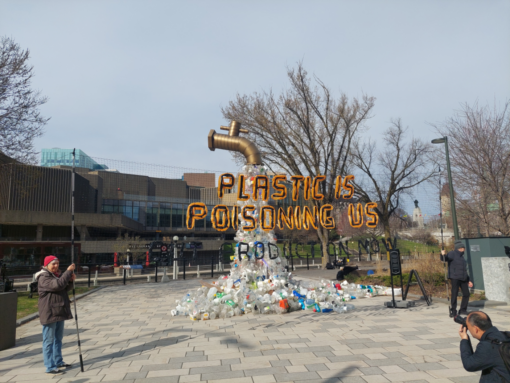
Global Plastics Treaty – another brick in the wall?
A shift from procedure to policy
UN processes often resemble life itself: slow-moving until suddenly time runs out, leaving crucial tasks undone. The recent fourth Intergovernmental Negotiating Committee (INC4) in Ottawa, Canada, added another chapter to the ongoing saga of the Global Plastics Treaty. However, definitive decisions remain elusive, with the final showdown slated for INC5 in Busan, South Korea.
Encouragingly, INC4 delved into substantive issues such as primary plastic polymers, reuse, recycling, and chemicals of concern, marking a welcome departure from previous procedural wrangling. Despite this, crucial matters like the treaty’s scope and procedural rules remain unresolved, casting doubt on the treaty’s effectiveness.
Expanding the scope of the treaty
Efforts by over 50 countries to maintain the treaty’s scope to encompass the entire plastic lifecycle, championed by Peru and Rwanda, faced resistance from plastic-producing nations, stalling progress. However, it was the first time in these negotiations that a significant group of countries from all continents raised their voices to reduce plastic production and this is something that may bear fruit later on in the process.
It is positive that some headway was made on intersessional work regarding plastic products, design, reusability and recyclability. Sadly, the most critical topic, the need to scale back overproduction, was continually sidelined.
Over the last two years of negotiations, more and more irrefutable evidence supports efforts to combat plastic pollution. However, the polluters are using everything in the political toolbox to avoid discussions and instead resorting to filibustering. With such a lack of honest dialogue, one should wonder how much a process like this could be expected to deliver.
Less walls, more roads
With only one INC remaining before the process concludes, the prospect of achieving a meaningful treaty that addresses production hinges on fostering open and honest dialogue. This requires establishing the necessary pathways, meaning, extending the negotiations for an additional year and adding 2 or 3 more INC sessions may be essential.
In other words, we need less stonewalling, and more roads.
At INC5, plastic producing countries such as Iran, Saudi Arabia, Russia or United States will seek to finalise the process and agree on a narrow scope with low ambition. If so, it might be time for the Global South, for whom plastic pollution is something to suffer, to use consensus to force the treaty to go into ‘extra time’. In the meantime, a Global Plastics Treaty that only addresses certain aspects of plastic pollution will only serve as another brick in the wall – and fail to prevent such pollution entirely.
The science has been clear. We need to reduce plastic production if we want to stay under 2°C warming. The question is not whether we want plastic or not, but rather how much plastic can we afford in order to stay within planetary boundaries and protect impacted communities and ecosystems.
Our main takeaways – a wall worth tearing down
All in all, this time the countries most impacted by plastic pollution managed to put up a fight in INC4. Meanwhile, it appears that the most polluting culprits got their way through further delays and derailing. There is one last round of negotiations which I hope will signal the beginning of something promising rather that the end of a nightmare. In the meantime, negotiators will continue building a wall not knowing if its purpose will be to trigger action against plastic pollution or to prevent it.
Further resources:
The Bridge to Busan: declaration aiming to reduce plastic production: https://www.bridgetobusan.com/